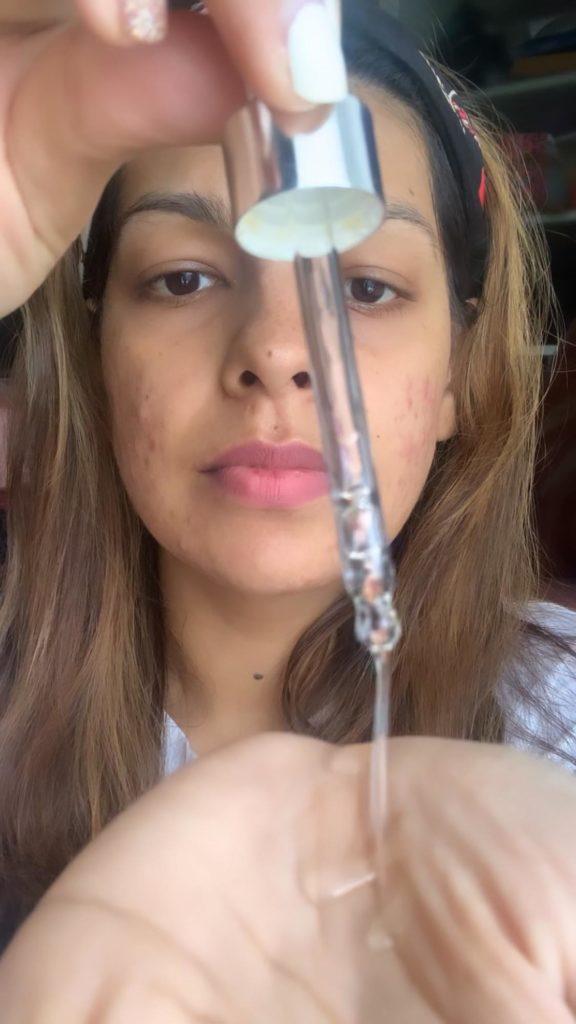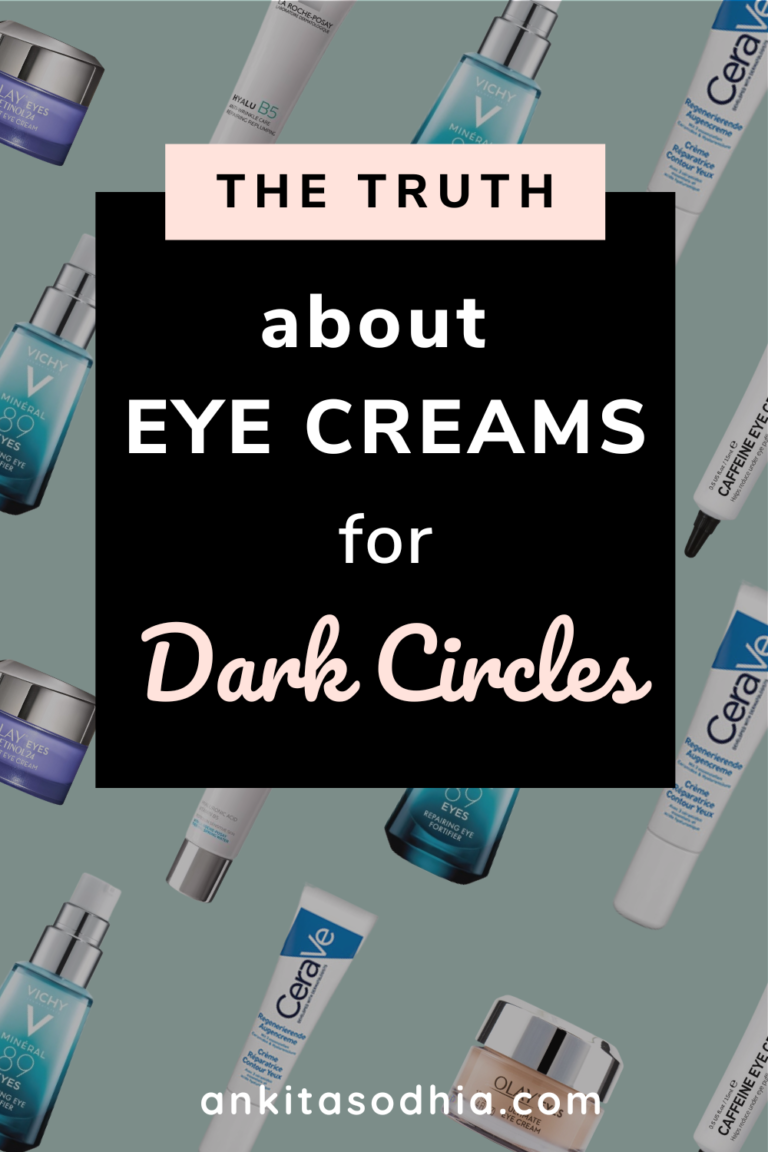Why You Need A Vitamin C Serum In Your Morning Skincare Routine — And Beginner Tips To Get Started
Information is power and I promise this post is packed with everything you need to know to get started with including a vitamin C serum in your skincare routine.
What is a vitamin C serum?
Think about it this way: just like you might take vitamin C as a daily supplement to keep your body strong and healthy to be able to fight off illnesses, the vitamin C in skincare acts in a similar way to keep protect your skin and keep it looking healthy and radiant.
Every day our skin is exposed to things such as pollution, dirt, and UVA/UVB rays, which can make it look and feel unhealthy. If you notice dull skin tone, irritation or redness, then these are the signs of oxidative stress, which is when the skin doesn’t have enough antioxidants to fight against free radicals (pollution, sun damage etc).
Bottom line: our skin needs antioxidants to stay healthy and protect against the harmful effects of the environment around us. Vitamin C is rich in antioxidants and offers incredible benefits that’s why it is essential in skincare.
Table of Contents
Vitamin C serum benefits:
- Brightens and evens out complexion
- Fades acne scars and dark spots (hyperpigmentation)
- Reduces redness and inflammation
- Protects against fine lines and photoaging caused by sun damage — the premature ageing of the skin due to exposure to UV radiation
- Regenerates and plumps the skin through collagen production
How to choose a beginner-friendly vitamin C serum
Know your vitamin C derivatives
If you’re reading the product labels on vitamin c serums, then these are the look vitamin C derivatives to look out for: L-ascorbic acid, sodium ascorbyl phosphate, magnesium ascorbyl phosphate, ascorbyl tetraisopalmitate and tetrahexyldecyl ascorbate.
L-ascorbic acid is the most widely known vitamin C derivative used in serums because it is the most effective in yielding results, since it is also the most potent. Just to give you some context: our skin’s pH level is somewhere around 4.7 and the pH level of L-ascorbic acid is around 3.5. But don’t be alarmed — this is the pH level required for the active ingredient to absorb into the skin and perform optimally. Most people (including first-time users) with normal to oily skin types can handle L-ascorbic acid with no issues — just start gentle and slow (more on that below).
Find the right pH and concentration for your skin type
If you have dry/sensitive skin or skin concerns, then find a vitamin C made with one of the other derivatives (sodium ascorbyl phosphate, magnesium ascorbyl phosphate, ascorbyl tetraisopalmitate and tetrahexyldecyl ascorbate)and find a formula with a pH closer to 5-6
because it will be much more gentle on the skin.
You also need to pay close attention to the concentration (look for the % on the packaging). For beginners and first-time users, start with a vitamin C serum with a concentration between 5-10% and build up to higher concentrations (15-20%) over time.
Start slow, build up tolerance and be patient with results
For beginners, add in your vitamin c serum into your morning routine:
Cleansing >> toning >> *vitamin C serum* >> moisturizer >> SPF
After cleansing and toning, apply a coin-sized amount of serum to the whole face and neck and let it absorb in for a few minutes, before following up with moisturizer and sunscreen.
Just a note: most vitamin C serums tend to feel slightly oily and tacky when applied because of the way the product is formulated, but don’t be deterred by this because the serum absorbs into the skin after a few minutes, leaving a beautiful radiance and glow and no greasy feeling.
Start slow to allow your skin to adjust — maybe twice a week for the first two weeks, then three times a week for another week or two until you feel comfortable for daily use. It might take up to 8 weeks to see results, just be patient and consistent. Rest assured, vitamin C is a powerful and effective ingredient, which works each day to enhance your skin health and it does make a difference in the long run.
Remember to always use sunscreen
Consider this a PSA: always, always use an SPF after applying a vitamin C serum because it is an active ingredient and makes the skin more sensitive in the sun, so you need to protect it well. And SPF actually helps vitamin C perform better on the skin — it’s a powerhouse skincare combo!
Keep an eye on the quality of the product
Make sure to store your vitamin C serum in a cool and dark spot, away from sunlight to protect the integrity and efficacy of the product. Otherwise, it will oxidize, turn brown, and offer no benefit to the skin. If you notice a funny smell, then that’s another sign to let it go. Vitamin C serums are not the kind of skincare products to buy in bulk and store because over time the quality and overall performance will deteriorate. Instead, buy one product to use at a time to ensure the best performance on your skin.
Be mindful of a few basic rules
- Don’t use a vitamin C serum in the same routine as other acids (AHAs / BHAs / PHAs). Use vitamin C in the AM and other acids in the PM.
- Don’t use a vitamin C serum in the same routine as retinol — split it AM and PM.
You might want to read this next: Affordable Vitamin C Serums With 5% to 10% Concentration — Perfect For Beginners (And Sensitive Skin!)






Can I use toner with vitamin c and retinol pm routine
Thank you for your comment, Marisela. I would avoid avoid it, if possible, just because you don’t want too many active ingredients in the same PM routine. Try a hydrating toner with hyaluronic acid when using retinol — it’s a better pair for your skin. Use Vitamin C only in AM routine. Read this post for more info: https://www.ankitasodhia.com/a-beginners-guide-to-active-ingredients-in-skincare-products-broken-down-by-skin-type-and-concern-includes-a-printable-infographic/